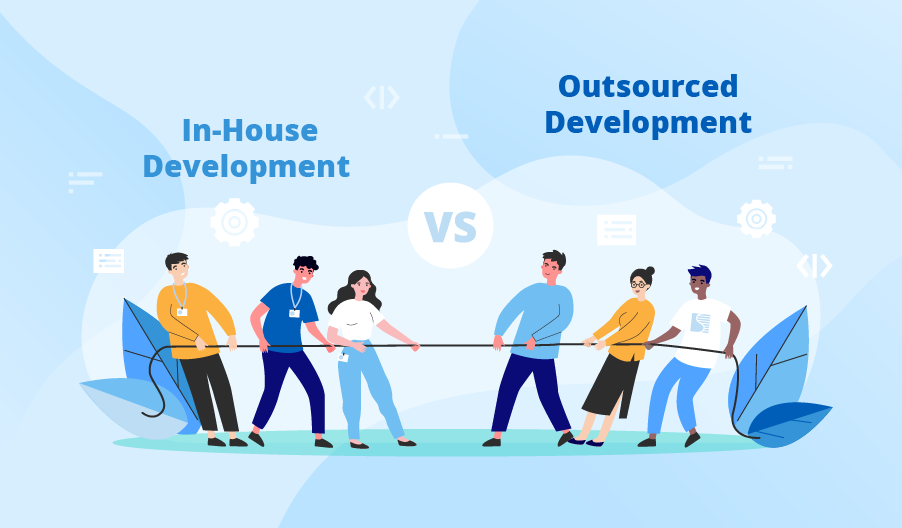When companies find themselves needing to address a specific business need, one question they’ll often have to ask is whether they can handle the task in house vs outsourcing it. Both approaches have pros and cons, and the answer to whether you should opt for in house vs outsourcing depends on multiple factors. Each business will have a different response to this, depending on their company and the business need in question.
Let’s take a closer look at some of the issues you should consider as you try to decide whether to address it in house vs outsourcing it to an external, third-party provider. While most of these considerations can be applied across industries, let’s use the need for Diginet IT services support business as an example.
Scalability:- Let’s say you need dedicated IT support for a new IT platform adoption your company is undergoing. What happens if you suddenly (or temporarily) need more or less of the service and expertise provided? With outsourcing, you may be able to scale the support up (or down) depending on your needs at the time. But having an in house employee dedicated to a task may not give you the same versatility. They may be underworked (or overwhelmed, depending on the situation) in the case of slow or fast times.
Flexibility:- If you outsource a specific task or service, you may be able to maintain a more flexible approach to getting it done. A provider can generally get more creative in how they solve problems as it’s up to them on how to approach the task. With an in house employee, it’s on the company to provide the solution or policy on how to do the work.
Client-facing vs internal:- Some projects or companies may require an in-person presence for their work. You may require client-facing staff to serve as onsite IT support. In this case, the pros of hiring in house may outweigh the benefits of outsourcing the position. You’ll have more control over where the in house staff works on a daily basis, assigning them to a specific office location.
If you don’t require client-facing staff, outsourcing your team will have many advantages. If they’re able to work from anywhere, they can work:
Telecommuting as remote IT support
Onsite at your office
Offsite, at their parent company’s office
Not needing representation at the client site gives you a lot more options on where your team can work from, which is well-suited for outsourced IT support.
Level of skills required:- Your decision to go in house vs outsourcing will also depend on the skill level required for the tasks you require. If the task is simple, you may be able to hand it to a single employee. If the services you require are more complex in nature, it’s highly unlikely a single in house employee will be able to match the collective skills and experience of an outsourced company.
Level of familiarity needed with the company:- You’ll also want to ask yourself how familiar the identified staff will need to be with your company. Do they need to be fully integrated with your business? How much do they need to participate in internal company meetings and events?
One positive aspect of external providers is that often, they can develop familiarity with the business they work for while assigning regular onsite support to that business. These team members can act as de facto part-time employees due to their comfortability with the company.




